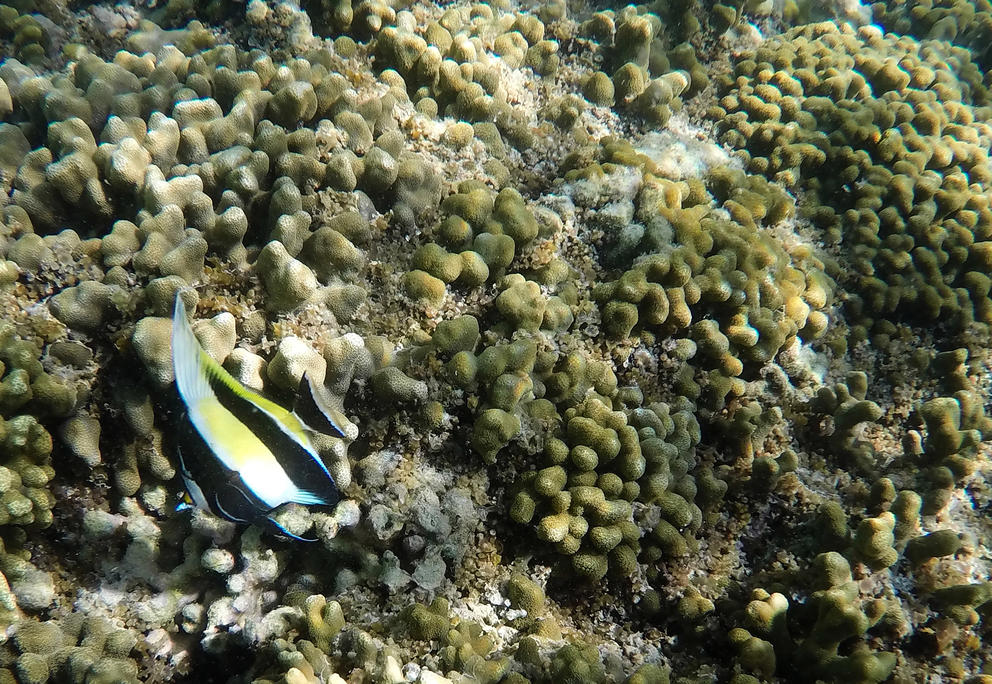Podcast | Can we engineer our way out of the climate crisis?
The New Yorker's Elizabeth Kolbert says human ingenuity may offer some solutions.

A fish swims over a patch of coral in Hawaii’s Kaneohe Bay off the island of Oahu on Oct. 26, 2015, as scientists prepared to transplant laboratory-enhanced "super coral" onto reefs in Hawaii in hopes that the high-performing specimens would strengthen the overall health of the reef. (Caleb Jones/AP)
The relationship between humanity and nature is complicated. People are a part of nature, but at the same time they are a force that acts upon nature … and usually to the detriment of the rest of nature.
Climate change is the most high-profile example of this interaction, but there are many other ways that human beings degrade the living world, from ocean acidification to the proliferation of plastics to the role that modern civilization plays in spreading pathogens.
Subscribe to Crosscut Talks on Apple Podcasts, Spotify, Stitcher, or Podbean.
The extent of the destruction wrought by humanity has been amplified by human ingenuity to what could be called an unnatural degree. But what if humanity could use that ingenuity to do the reverse, to mend the damage done.
That is the topic of this episode of Crosscut Talks, featuring author Elizabeth Kolbert and Grist staff writer Lizzy O’Leary discussing the intriguing technologies that may help heal nature and the likelihood that they will protect the planet from the worst ravages of climate change.



